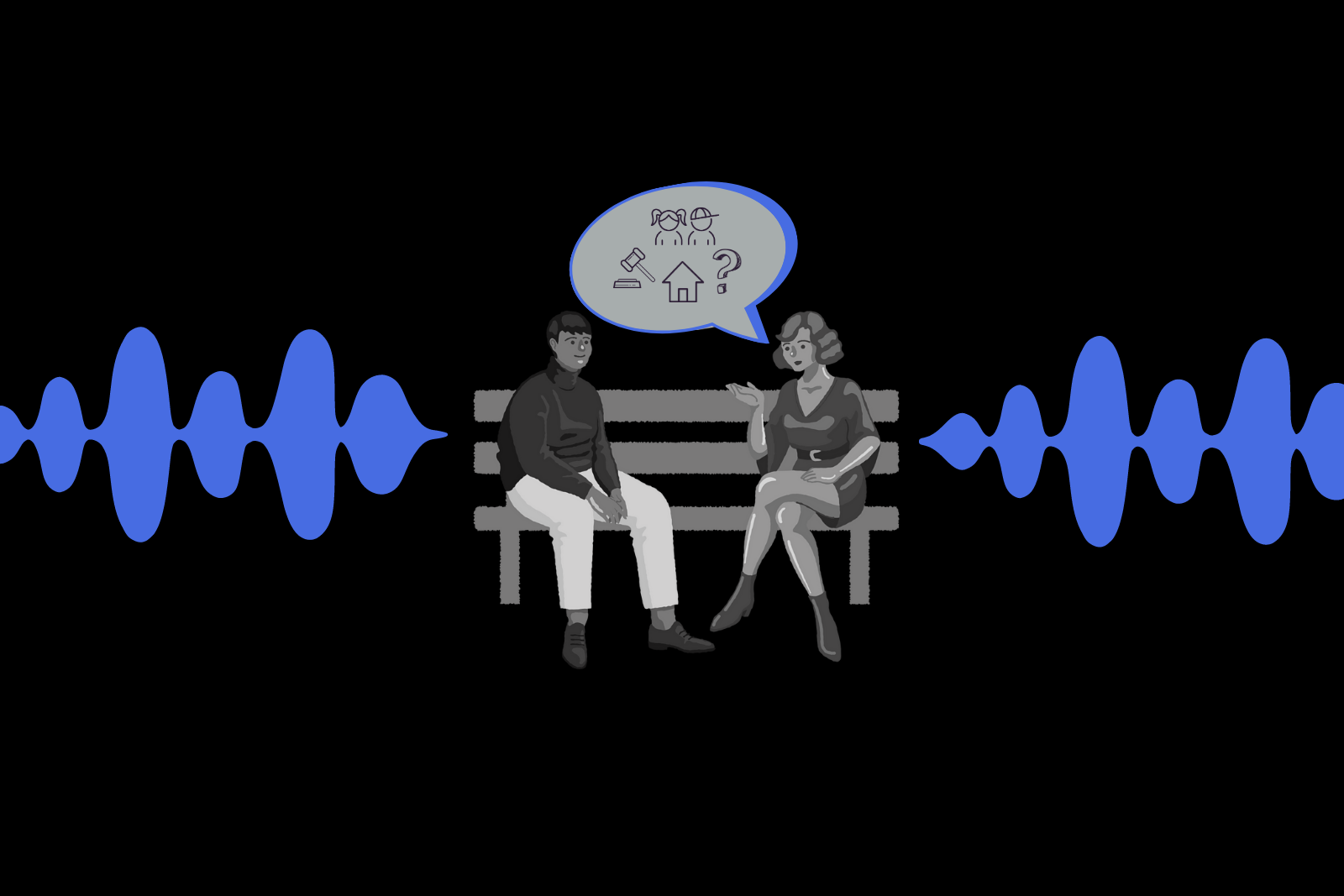by Ivy Law
Welcome to Ivy Law Group’s Podcast – The Family Five!
We hear the term narcissist thrown around a lot, but what exactly is a narcissist?
In this week’s podcast episode, we discuss narcissism, steps to take if you want to leave your relationship, along with strategies that may assist you with co-parenting with a narcissist.
Transcript: What do I do if my partner is a narcissist?
JH: Hello and welcome to the Family Five Podcast with Ivy Law Group, where we tackle the tough family law issues in the time it takes you to drink your coffee. I’m Jessica Hamilton, I’m the Marketing Manager for Ivy Law Group, and I’m joined by my boss, Shane Neagle, who is the director of Ivy Law Group and the family lawyer extraordinaire. In this podcast, we will take a five in five approach, five questions in five minutes. Our aim is to keep the podcast light, easy to understand, and to give you some valuable information to take away with you.
*music*
JH: All right, episode three. How exciting. How are you, Shane?
SN: Good things come in threes. How are you, Jessica?
JH: Yeah, not too bad, thank you. So today we are going to be talking about narcissism. Obviously it’s quite a intense topic. So Shane, I guess we hear the term narcissist thrown around a lot. What exactly is a narcissist?
SN: Narcissism, unfortunately gets overused so much so, that it can be harmful. Narcissism, sometimes when we are talking to someone, (we often use the terms) arrogant, selfish and they’re just a jerk. But narcissism in its true form describe someone with a narcissistic personality disorder. They are someone with a pattern of extreme self involvement, a lack of empathy and (an) excessive need for attention. At a glance, that diagnosis would include most preteens or even ourselves during our lifetime. The key to true narcissism is when the self involvement is so extreme, it causes a person to ignore the other people around them.
JH: How do you know if you’re in a relationship with a narcissist? What might this look like?
SN: To sum it up before we start, is that you often feel like you’re the third wheel in the relationship.
JH: Because they love themselves more than they love you?
SN: Well, yeah, they think they love themselves. But I mean the classic (signs) is when they love bomb you, and it usually happens at the start of a relationship where they’re very charming and you kind of get sucked in. The other way (that you can tell) is that they’re always talking about themselves (this is a classic), about how good they are, how successful they are, but never letting anyone else in to talk about what their lives are about.
JH: And would a narcissist be constantly putting down their partner?
SN: Constantly? That’s an understatement. They often – you will do something for them and it could be trivial, like putting fairy lights around their balcony for Christmas that costs you $20 – and they say, oh, you didn’t do a very good job. They are very impossible to please. The interesting thing is that you can have what they call a grandiose or a vulnerable narcissist. So they can be at either end and the vulnerable ones (are the ones) where they’re victims yet they still have this sense of entitlement. They’re just a bit more heavily anxious.
JH: Okay. So say for example, you have decided to leave, what steps can you take to protect yourself? What is it like dealing with a narcissist when you’re trying to go through the family court system?
SN: Look, at the end of relationship they may become very combative, passive aggressive, hostile and even more controlling. Leaving a relationship of that kind can be one of the hardest things that you do. This is a classic thing with narcissists, where they rely on your supply and that’s the people they’ve emotionally, financially, and psychologically drained. And I call them like vampires. You just have to trust your gut and your boundaries. Whatever you do, you should take it very slowly. It’s a bit like taking away ice cream from children for the whole weekend on a holiday. You take it slowly, don’t say, well I’ve worked this out and I need to now set up the most strictest boundaries possible. It needs to be strategic. And I think that one of the first key things for anybody who thinks they’re in this situation is to go see a mental health professional, someone who can help guide you through the process, the (part of) potentially leaving and how to do that. It’s also important to have legal assistance in that process, it can help because there can be strategies to it. If you’ve already left, the same applies, I think one of the key things is to learn to ground yourself. A narcissist will put you offcentre. Don’t believe they will change and in fairytales and don’t tell them that you are leaving. Again, do the standard things that we always talk about on our website. Make copies of documents, log out of everything. Check your devices for trackers and just reconnect with your families and friends because that’s one thing I didn’t talk about before, is that one of the classic things that a narcissist tries to do is isolate you from your family and friends and have control.
JH: So can you successfully co-parent with a narcissist?
SN: I’m going to say the chances are very difficult. The classic response is they try to ruin the relationship with you and your children. They try to regain this grandiose sense of self by hurting you. So (with) the few steps that you can take – there’s this thing called parallel parenting where you set up a parenting plan or hopefully a consent order between you and the other person that puts really strict arrangements in place. For instance, you want to avoid as much contact as you can (with that person), so you have drop offs at the school where you don’t have to see each other. Setting up (these) really strict boundaries is really, really important, obviously. And it’s going to take time because you have probably been out of disregulation for a long time in this relationship and that’s okay. But your communications with a narcissist (should be), yes *pause*. No, *pause*. You have a right to your opinion, *pause.* I will get back to you on that, *pause*. Very simple and business-like.
JH: All right. So I guess we’ve talked about some very intense things here, so let’s just end on a lighter note with a joke.
SN: Thanks, Jess. (Here goes). I think my grocery store is trying to turn me into a narcissist. Everytime I go there, they make me check myself out, It’s true.
*laughter and music*
JH: Thanks for tuning in and don’t forget to save us to your favorites wherever you listen to your podcast so that you don’t miss an episode. It’s important to note that the contents of this podcast are intended as a general guide to the subject matter and if you are looking for specific advice about your individual circumstances, then we would recommend getting in touch with one of our friendly family lawyers.
To see all episodes and subscribe to the Family Five Podcast, visit our podcast page here.

